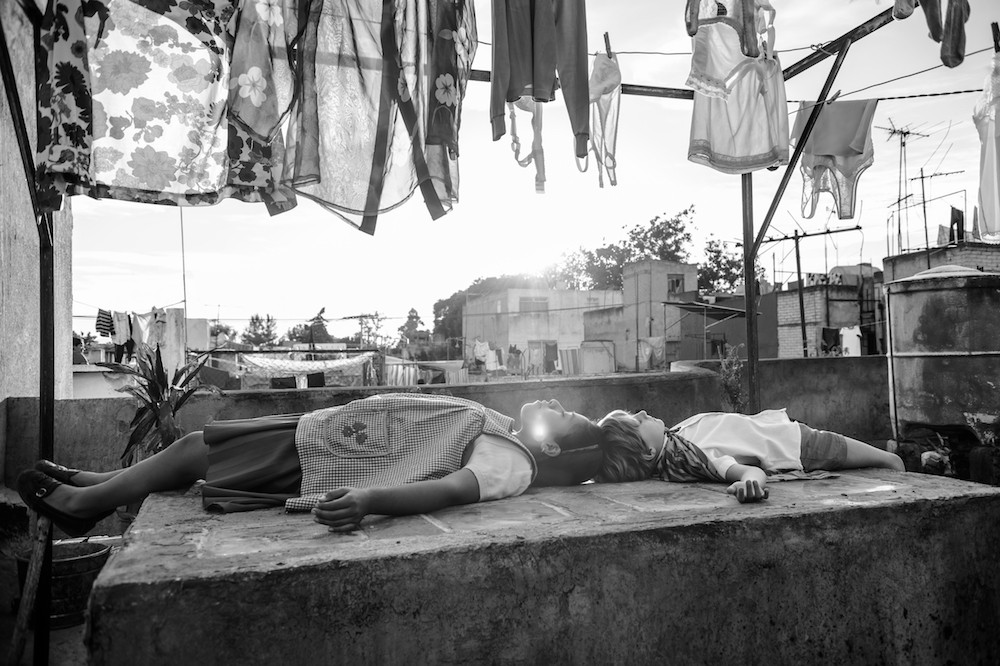Roma
Roma FL, 2018, 4 ½ stars
Eternal cinema
Roma is one of the year’s best films
From The Orlando Weekly, December 12, 2018
Alfonso Cuarón has named his new film Roma, either to reference the Mexico City district in which the period drama is set or to equate the metropolis with Rome. If the latter is the reason, it’s strangely appropriate, as, like the Italian city, the Mexican writer-director’s movie also seems eternal.
That might be because Cuarón (Gravity, Children of Men) shot his deeply personal, autobiographical film in many of the places the events took place. Or it might be because the movie is set in the ‘70s and features richly detailed art direction and dialogue in both Spanish and Mixtec. Or perhaps it’s because of Cuarón’s black-and-white cinematography, which, along with the minimal camera movement, strips the film of superfluousness. But regardless of the reason for the eternal quality, Roma is one of the year’s five best movies.
The film focuses on Cleo, a live-in nanny and housekeeper for a moderately wealthy family. She does a little of everything, including helping raise the four children while the parents sort out their dysfunctional marriage. And though she’s from a different social and economic class, Cleo is mostly embraced by her employers.
“I was born poor, and you’ll never love me,” she sings to herself while doing laundry. Despite that lyrical longing, the family does love her, but only on a certain level. And perhaps that’s the largest social takeaway from a film packed with them: Cleo and everyone like her are members of families to which they will never truly belong.
Above all else, the film is observational, and often extremely quiet. Indeed, it has virtually no score, except for the music of a tinny marching band, or the family’s phonograph, or a solitary singer. But that doesn’t mean its story is weak. Though it lacks a traditional narrative structure at first, it’s just biding its time, introducing you slowly and hyper-realistically to its characters until it eventually drops an emotional anvil on your head. And hovering in the background, just out of sight for most of the film, is El Halconazo, the student massacre of 1971.
As Cleo, Yalitza Aparicio is a pleasure to watch, as are the other actors. But the film isn’t focused on performance. Instead, Cuarón is obsessed with visual, historical and metaphorical composition, peppering his canvas with beautiful, almost Felliniesque details.
For instance, a simple shot of people descending stairs is embellished by two ducks furiously mating in the foreground. A Christmas trip to a relative’s hacienda is illustrated with multiple, mounted, taxidermied heads of the family’s dogs. No audience member will soon forget Cleo’s boyfriend’s all-nude, martial-arts demonstration featuring a curtain rod as a makeshift staff. And in a scene that fully embraces magical realism, we learn just how difficult it is to close your eyes and balance perfectly still on one leg. (You’re doing it yourself now, aren’t you?)
In 2014, I chastised the Academy of Motion Pictures Arts and Sciences for confining Paolo Sorrentino’s The Great Beauty to the foreign-language category instead of nominating it for best picture. For the sake of international cinema, cultural diversity and just plain good quality, I implore them to not make the same mistake with Roma.
© 2018 Orlando Weekly / MeierMovies, LLC
